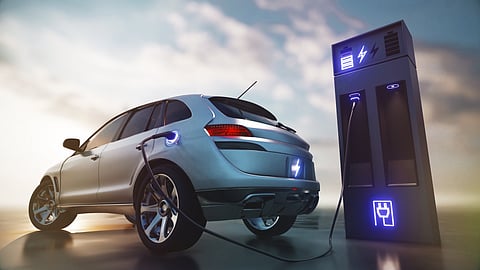Budget 2024-25: Exemption of import duty on critical minerals a welcome move, given China’s stronghold on supply chains
Budget 2024-25 has exempted import duty on 25 minerals including lithium, gallium, germanium, copper, cobalt and nickel.
Of these 25, three minerals, namely lithium, cobalt and nickel are essential for the manufacturing of batteries used for electric vehicles (EV).
It is well known that batteries account for at least 40 per cent of the cost of an EV. A reduction in the price of these minerals will bring down the manufacturing cost of batteries, thereby having a downward effect on the upfront cost of EVs.
Though it remains to be seen what the overall impact on a cell manufacturer’s bill of materials will be, a waiver of import duty will certainly encourage localised battery production.
Earlier, they had duties in the range of 2.5 per cent-10 per cent.
Apart from space, defence and telecommunication, this move is expected to have a significant impact on the energy sector, particularly the EV battery industry. This is a welcome step and aligns with India’s larger strategy of securing critical minerals supplies through global partnerships.
Khanij Bidesh India Ltd (KABIL), a joint venture of three PSUs, formed to scout for mineral assets overseas, is likely to acquire a lithium block in Australia this year.
India became a member of the Minerals Security Partnership (MSP) in 2023. MSP is a partnership of 14 countries and the EU to accelerate public and private investment in critical minerals supply chains.
The China question
When the rush to decarbonise transportation started, China started gaining control over critical mineral deposits spread across the globe.
“Although many countries are increasingly aware of these minerals’ importance, Chinese firms have been the most active in these pursuits,”S&P Global wrote in August 2023.
Over the last decade, China’s control over critical minerals has grown steadily.
It has significant control over lithium mines in the South American countries of Argentina, Chile and Bolivia, popularly known as the ‘lithium triangle’, and also Australia.
As of June 2023, Chinese companies were invested in at least 29 lithium projects across Latin America and Africa. Not only lithium, nickel and cobalt are also on the target investment lists of Chinese companies.
China’s control extends all the way to processing of minerals, cell manufacturing, battery manufacturing and even EV production. They control the value chain end to end.
These facts are not received well by European and American firms outsourcing their manufacturing to China.
This is because of China’s strategy of state sponsored capitalism, where the government has heavy-handed interventions in the country’s industrial policies. One recent example was China’s restrictions on export of gallium and germanium, followed by scrutiny on export of high-grade graphite. These materials are used in microchips and EVs respectively.
China, which had emerged as the world’s manufacturing hub over the last decade, has been losing the single-minded attention of its clientele.
Western media is widely reporting on the global manufacturers’ China Plus One strategy, where focus is being laid on diversifying the manufacturing risks by reducing the sole dependence on China.
Companies like Tesla are instructing their vendor partners to start manufacturing parts and components outside China amid growing geopolitical uncertainties.
Making strides in CAM manufacturing
Meanwhile, India is trying hard to catch the chip manufacturing bus it once missed and planning in time for indigenisation of the EV industry.
Log9, a lithium-ion battery manufacturer based in India, had informed Down To Earth last year that given the low scale of battery manufacturing in India, they had little bargaining power with their Chinese vendor partners.
Since then, only a few cell and Cathode Active Material (CAM) plants have come up in the country. CAM is the mixture used to make cathodes in a battery by coating it on the current collector.
In January 2024, Hyderabad-based Altmin announced an investment outlay of $100 million in a CAM plant. LOHUM has announced the setting up of a CAM plant in Hyderabad.
But these initiatives are few and insufficient. By exempting the 25 critical minerals from import duty, India is not only opening doors for foreign raw materials to flow into the country, but giving a free hand to Indian industry to bargain powerfully and choose the best deals in the global market. This would give an impetus to the Indian battery industry.


